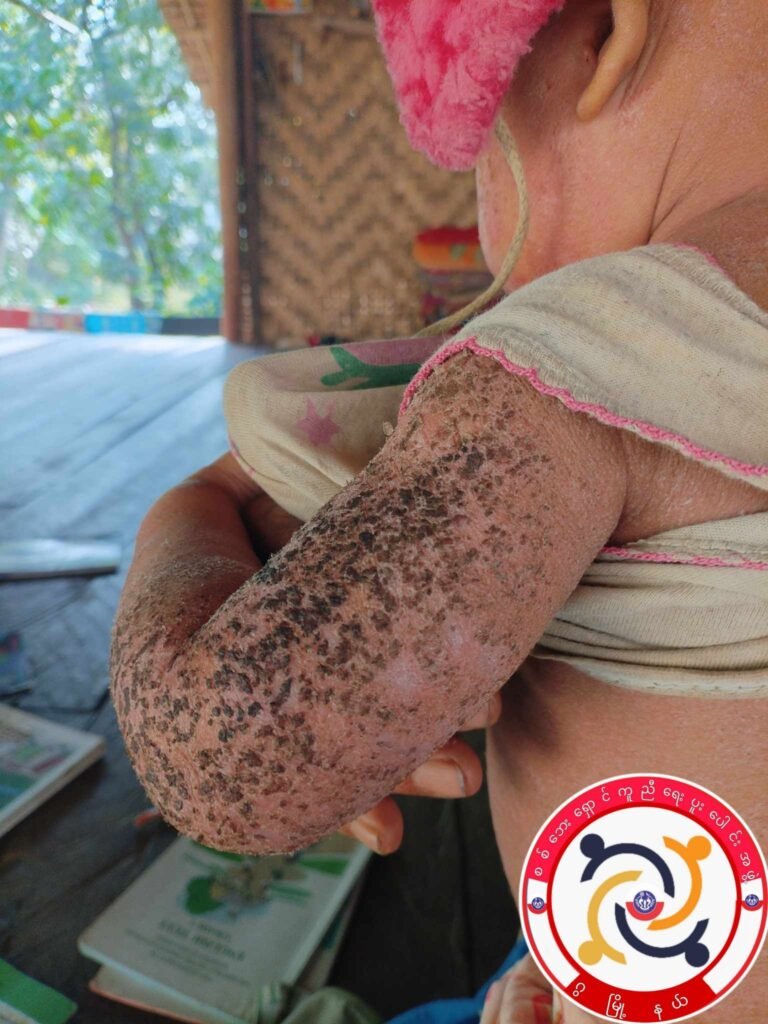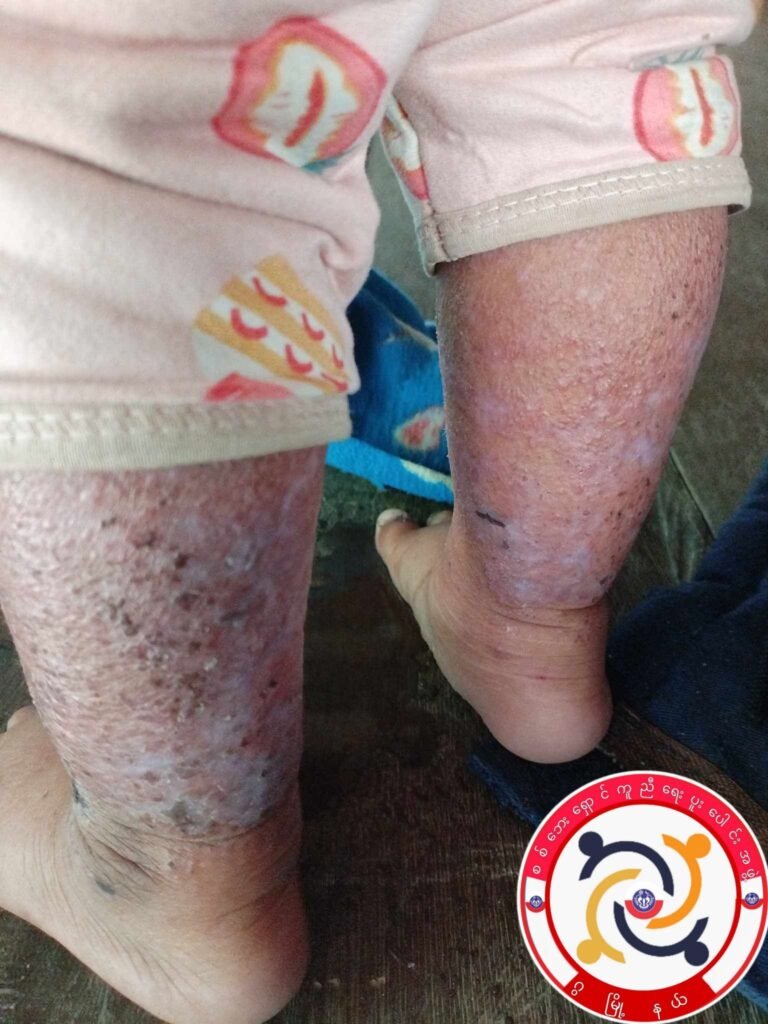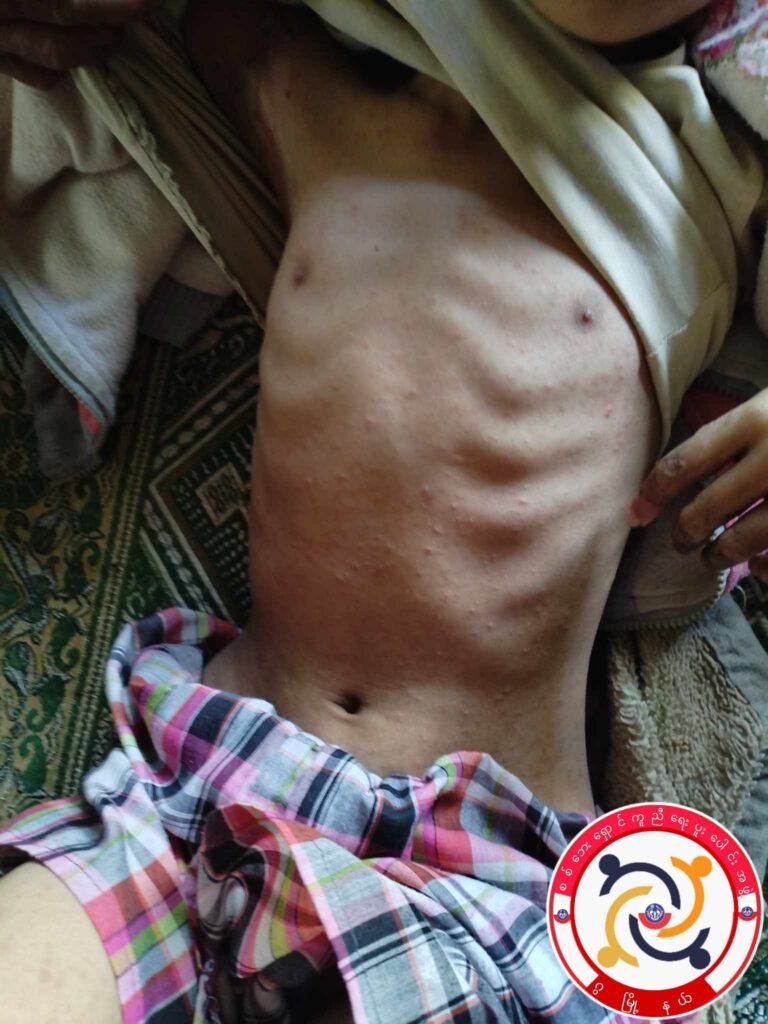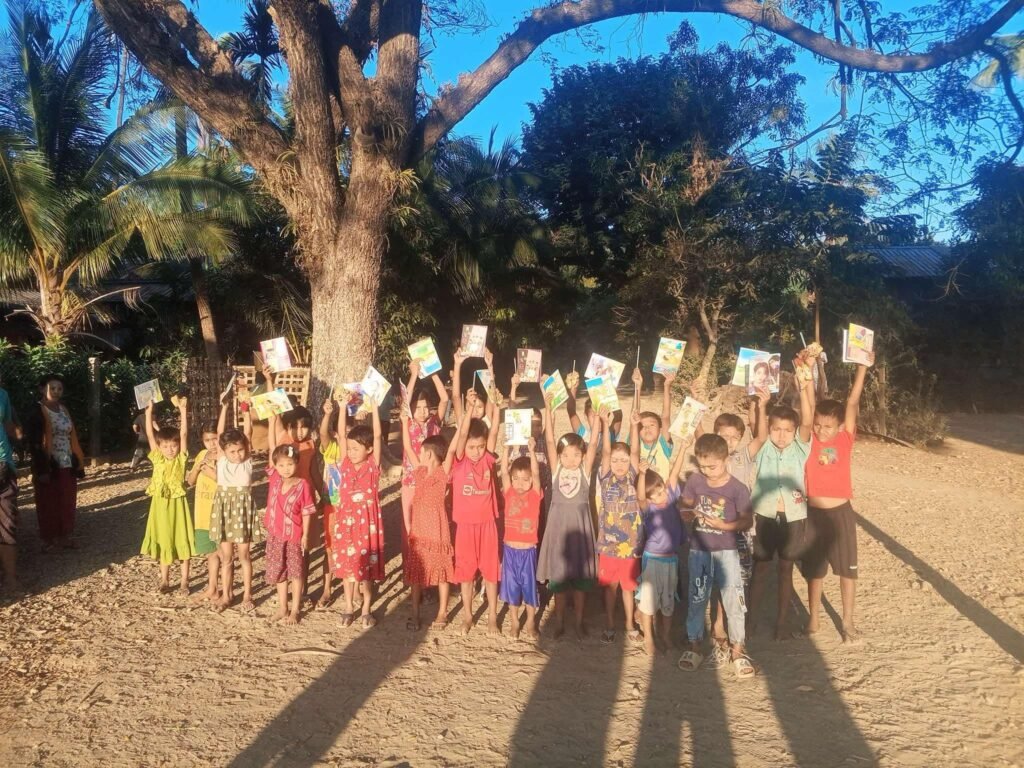Nyein Chan Say (Lay Waddy FM)
The aftermath of war has struck children with devastating force. Throughout 2024, Rakhine State witnessed relentless fighting, and its people endured the overwhelming hardships of war.
The people of Rakhine, with gritted teeth, are enduring bloodshed on a scale unseen in two centuries—lives upended by food shortages that force them to travel dozens of miles for donations and lives shattered by life-altering injuries from airstrikes and landmines.

The Arakan Army (AA), which led the city seizure and achieved significant successes, has consistently expressed its profound gratitude to the people of Rakhine State in every public statement. Yet, this is only a part of the story.
While the people’s unity and the AA’s capabilities brought about swift victories, the children of Rakhine—the lifeblood of the region—are equally bearing the brunt of the war’s devastation, forced to endure its hardships without choice.

This early period of 2025 can be described as a lull in the fighting, a time of uneasy calm, where the battles seem to have paused, whether through negotiation or simply a cessation of hostilities without any need for dialogue.
It is during this period that the severe hardships endured by the people, who have spent months housing in bomb shelters, are becoming starkly apparent.
Among these hardships, one of the most pressing is the severe impact of the war on children.
Reports from local aid organizations indicate that children are suffering from skin diseases too painful to witness. News outlets have been continuously reporting on this issue, which has now become an urgent problem for these young victims.
The unidentified rashes on their tiny hands, chubby legs, and backs are deeply heartbreaking.

The condition of the children seen in the photographs can only be described as extremely severe. While there have been calls for collective donations of medicine and efforts to deliver aid to the affected areas, those on the ground say that these are only short-term measures.
Aid organizations report that they lack sufficient medicine to effectively treat the illnesses.
‘Our organization has donated medicine five times with the funds we have received, but it is completely inadequate,’ said a field coordinator from the Ngapali Collective Charity Organization.
In towns recently affected by war, such as Gwa, Thandwe, Toungup, and Ann, children are suffering from severe skin diseases.
‘How can they possibly stay clean when they have to live and sleep on the ground?’ said a mother from a displacement camp in Ann Township.
“The secretions from scratching to relieve itching spread all over their bodies, and the infections are easily transmitted from one child to another.“

Another critical issue affecting children is the shortage of medicine and nutrition for pregnant mothers.
At a time when many families struggle to have a meal regularly, expectant mothers are also deprived of essential medication and supplementary nutrition.
“Even securing emergency food supplies has become difficult. We have not yet been able to provide specific nutritional support for pregnant women,” a representative from a relief organization in Gwa Township stated with concern.
Pregnant mothers and their unborn children are now facing life-threatening constraints.
It is reported that pregnant mothers and newborns are not receiving adequate nutrition, and are also experiencing life-threatening health emergencies and even deaths.
“There is no other hope for babies who are born unhealthy,” a woman from Thandwe said.
Another impact on children is the disruption of their education.
Although this requires a long-term solution, it is also crucial to recognize that every moment spent without schooling has negative consequences for these children.
Children of all ages, ranging from primary to high school, have been deprived of education for over a year.
Airstrikes conducted by the military junta have rendered school buildings unusable, and the human resources needed for teaching, the teachers themselves, have been scattered.

Relief organizations estimate that over six hundred thousand people have been displaced by the conflict over a year, and a quarter of that number are children.
Based on that estimation, over one hundred thousand children are affected by the war and in dire need of assistance.
Each child holds a future within them, and it is vital that they be allowed to live and grow in a safe haven. It is, therefore, urgently necessary that they be freed from the ravages of war.
Photo – IDP Support Organizations in Rakhine State
By Nyein Chan Say (Lay Waddy FM)
Translated by Zan

